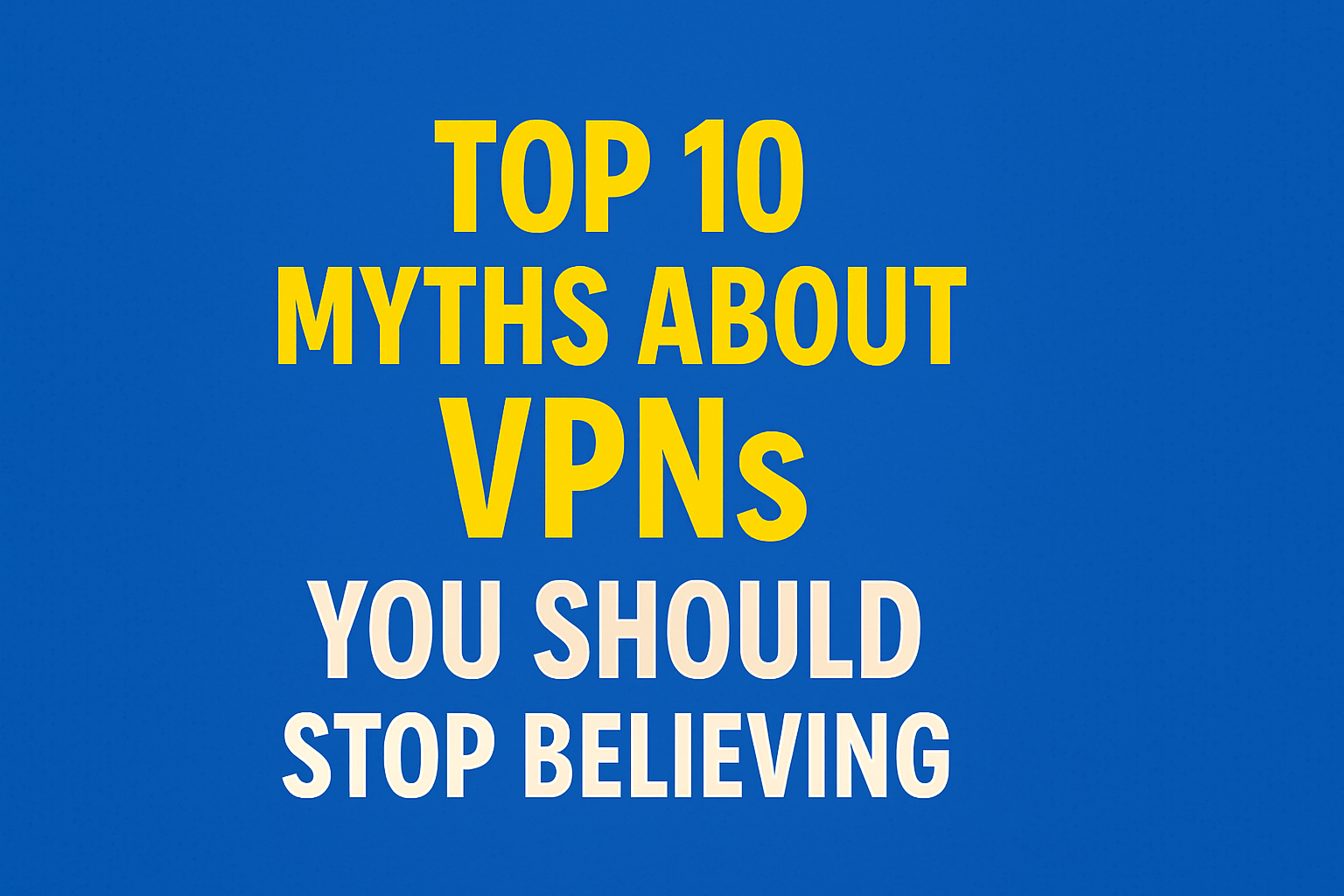VPNs are everywhere now — from ads on YouTube to built-in options in browsers. But many people still misunderstand how they work. Let’s bust the top 10 myths about VPNs you need to stop believing today.
VPNs Make You Completely Anonymous

False. VPNs hide your IP, but websites can still track you through cookies, browser fingerprints, and logins.
Free VPNs Are Just as Good

Nope! Most free VPNs log your data, show ads, or sell your information. You often get what you pay for.
VPNs Are Only for Hackers or Criminals

Wrong. Regular users use VPNs for privacy, secure browsing on public Wi-Fi, and accessing geo-blocked content.
VPNs Slow Down Internet Speed Always

Not always. Good VPNs actually improve speed on throttled networks by bypassing ISP restrictions.
It’s Illegal to Use a VPN

Not true (in most countries). VPNs are legal in India, the U.S., and many parts of the world unless you use them for illegal activity.
VPNs Protect You From All Cyber Threats

Nope. They encrypt traffic but don’t protect against viruses, phishing, or weak passwords.
VPNs Are Difficult to Set Up

Old myth! Modern VPNs are super easy — one-click apps are available for all devices.
Only Tech Experts Use VPNs

Wrong. Students, travelers, gamers, and remote workers all use VPNs regularly.
VPNs Work the Same on All Devices

No. Performance and protection vary by platform. Always check compatibility and settings.
You Don’t Need a VPN at Home

You do! ISPs still track your data at home. VPNs keep your browsing private no matter where you are.
Final Note:
VPNs are a powerful tool for online privacy — but only if used right. Don’t fall for myths. Stay informed, stay secure.


Leave a Reply